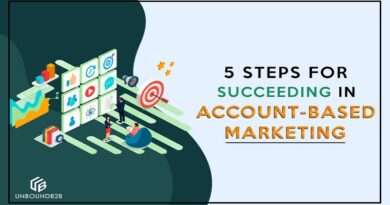How ABM Is Redefining B2B Marketing Success in the Digital Age
As the B2B landscape continues to evolve, marketers are increasingly evaluating the effectiveness of Account-Based Marketing (ABM) compared to traditional marketing strategies. With digital transformation and shifting buyer behavior influencing business decisions, the debate around which approach delivers greater value in the B2B sector has intensified. Both ABM and traditional marketing offer distinct advantages, but the rise of personalization, targeted outreach, and measurable ROI has put ABM at the forefront for many enterprise-level businesses.
Traditional marketing in B2B settings has long relied on broad-based campaigns aimed at generating leads through wide-reaching channels such as trade shows, email newsletters, industry publications, and paid advertising. This approach focuses on volume, visibility, and brand awareness, and can still be valuable, especially in markets where brand equity plays a strong role in customer trust. However, one of the major challenges with traditional methods is their inefficiency in engaging specific high-value accounts. Conversion rates are often lower due to the lack of personalized content and one-to-one engagement.
In contrast, ABM is highly targeted, focusing on identifying and engaging key accounts with customized messaging and content tailored to the specific needs and pain points of decision-makers. This precision makes ABM particularly powerful in the B2B industry, where purchase decisions involve multiple stakeholders and longer sales cycles. By aligning marketing and sales teams, ABM enables organizations to build deeper relationships with priority accounts, track interactions more effectively, and demonstrate stronger ROI through closed deals and increased customer lifetime value.
Recent market trends suggest that B2B companies investing in ABM strategies see higher engagement rates, more meaningful conversations with prospects, and improved pipeline efficiency. With advancements in marketing automation, CRM integrations, and data analytics, ABM campaigns are becoming more scalable and measurable, allowing marketers to focus resources where they have the highest potential impact.
While traditional marketing still holds relevance in certain aspects of brand promotion and top-of-funnel activity, ABM has proven to be a more efficient and effective approach for B2B companies aiming to drive growth through strategic targeting and personalized engagement. As competition intensifies, businesses are increasingly leaning toward ABM to achieve their demand generation and revenue goals.




